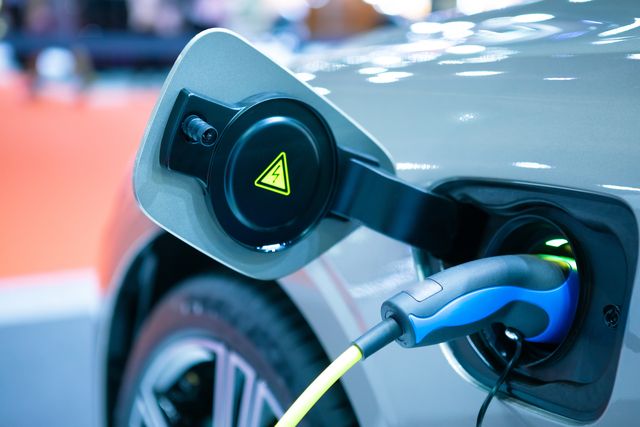Comedian explores study suggesting EVs may not be as clean as thought
During a recent episode of “The Joe Rogan Experience,” comedian Joe Rogan expressed astonishment upon discovering a study indicating that electric vehicles (EVs) might produce more pollution than traditional gas-powered cars. This revelation came as a surprise to Rogan, an EV driver himself, who initially found the notion hard to believe.
The study in question, reported by Emission Analytics in 2022 and highlighted by the Wall Street Journal, presents a counterintuitive perspective on the environmental impact of electric cars. According to the study, the primary source of vehicular pollution today stems from tyre wear rather than exhaust emissions. This shift is attributed to the advancements in reducing tailpipe emissions in new cars, making tyre wear emissions, which are 1,850 times greater than exhaust emissions, the predominant concern.
Electric vehicles, being approximately 30% heavier than their gas-powered counterparts due to their large batteries, contribute significantly to this issue. The added weight increases the wear and tear on tyres and brakes, leading to higher rates of particulate emissions. Additionally, the increased torque found in EVs exacerbates this effect, potentially leading to greater environmental harm than initially understood.
Rogan’s own experience with noticeable brake dust on his electric car added a personal dimension to the discussion. However, the study notes that “gentle” driving and the use of regenerative braking systems in electric cars can mitigate some of these emissions, potentially making well-driven EVs cleaner in terms of tyre wear than poorly driven gas-powered vehicles.
The podcast also touched on the broader implications of the electric vehicle market, including the challenges associated with battery production and the lack of a robust used EV market. Concerns over the environmental impact of battery production, coupled with apprehensions about the longevity and replacement costs of EV batteries, contribute to hesitancy in the used electric vehicle market.
In Europe, particularly in Germany, which boasts the highest number of electric vehicles, used EVs account for a mere fraction of new ownership registrations, underscoring the challenges facing the secondhand market. Factors such as high purchase prices, perceived scarcity of charging stations, and range anxiety further complicate the adoption of used electric cars.
This conversation on Rogan’s podcast sheds light on the complexities and unforeseen environmental impacts of electric vehicles, challenging the straightforward narrative of EVs as the cleaner alternative to gas-powered cars.
